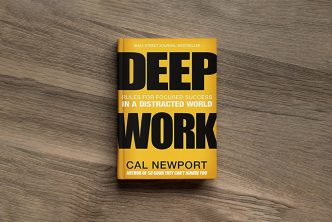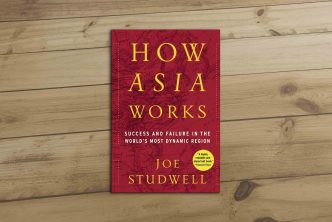By Asiegbu Charles.
Fighting corruption is a famous mantra that has preceded administrations in Nigeria. Historically, it has also served as an excuse for military take-over from the civilian rule. Following the trajectories, military and civilian administrations from the Muhammadu Buhari, Olusegun Obasanjo, Shehu Shagari to the Sani Abacha regimes listed the fight against corruption as a crucial policy pursuit. Corruption is a scourge that has weakened Nigeria’s place as the giant of Africa in the comity of states. Even with genuine reforms and efforts put in place to end corruption, a label that never eludes outgoing administrations in the country is the tag of being “corrupt”. Accompanied by blackmail, persecution or prosecution, media trails and hounding of former officials—this a reassuring pointer to why fighting corruption is indeed dangerous.
The author, Dr Ngozi Okonjo-Iweala, a two-time Finance Minister for two different administrations in Nigeria, in this book “Fighting Corruption is Dangerous: The Story Behind the Headlines” bared her mind on the sacrifices, intimidation, pitfalls and threats she faced while she held sway as a minister trying to fight corruption. She noted that the onslaught against her personality did not stop when her tenure in office elapsed; instead, the intensity leapt on, and the stones kept coming. Inspired by the backlash and character assassination that ensued during the end of the President Goodluck Jonathan administration, this book aims to set the records straight through a first-hand account of the front-line reforms, actions and the toes stepped-on by the author in the battle against corruption.
An essential milestone, as recorded in this book, was the revival of the revenue publications which she termed “the most boring bestseller” to make government revenue distribution to states more transparent. In her account, Nigeria’s profound fiscal decentralization gave state governors tremendous freedom and little accountability in the use of state resources. While a few were fiscally responsible, others were not, which saw to a depletion in the resources for vital state and local services. When people at the various states complained about the shortfall in these services, the governors told them that the federal government had not disbursed revenues to the state.
Following the hostility against the federal government that trailed this situation, the author, duly supported by the then president, Olusegun Obasanjo, began a revenue transparency drive that published allocations to the federal, state and local governments. The numbers were published monthly in newspapers by the Office of the Accountant General of the Federation. The publications were an instant success as people at the states could hold their leaders accountable. This development did not go down well with some powerful governors.
What about her encounter with oil fraudsters? Nigeria has subsidized oil for three decades because of its limited refining capacity. From Okonjo’s analysis, Nigeria exported crude, refined it, imported it again and sold it to the Nigerian public below market price. The federal government covered the cost of these subsidies, which was a considerable burden that depleted resources accruing to the government. According to the author, Nigeria’s subsidies in 2011 totalled a staggering N1.73 trillion which represented 33 per cent of the federation revenue.
A disturbing scenario that played out during the subsidy regime was the fraudulent transactions by some oil marketers and public officials. This situation was such that oil marketing companies laid claim to subsidies for shipments that were diverted to neighbouring countries like Niger and Benin or never delivered. After the controversies that beset the House of Representative Ad-hoc committee on fuel subsidy and its chairman, Honourable Farouk Lawan, the process of further investigation on fraudulent activities and bringing defaulters to book, was stalled.
A technical committee was set-up with the support of the then president to verify initial subsidy claims. The committee, later upgraded to a presidential committee, found that of the N1.3 trillion verified for subsidy payments, N382 billion was fraudulent and recommended the apprehension and recovery of these funds from the 107 indicted oil marketing companies. This move also captured officials of the several regulatory agencies that were complicit. It implied that the finance ministry could not make any payments to the flagged oil marketing companies, which elicited anger, resistance and opposition against the Ministry of Finance and the author in extension.
Were there consequences? The author’s 83-year-old mother was abducted by kidnappers on December 9, 2012, in Ogwashi – Ukwu, Delta State. Their primary demand was she announced her resignation as Finance Minister and returned to the United States; later switching to a request for a ₦100 Million ransom. From her mother’s account, while interacting with the abductors, they gave their reasons for the kidnap. One was the refusal of her daughter to pay oil marketers and two, the release of the SURE-P funds; thereby linking the kidnap to the fraudulent oil marketers.
The stones kept coming: Nearly two years after the end of the administration she worked under, on March 7, 2017. She narrated how officers attached to the Special Anti-Robbery Squad (SARS) stormed her residence in Abuja and ransacked her house in search of illegal currency. When the police found nothing incriminating, they requested for the occupants to join them at the station to make statements. One indicator of the harassment and intimidation was her relay of the encounter between her assistant and a police officer who pulled her aside to say “the owners of the house should not be angry, the police were doing their job. They had only been carrying out orders, and they were in trouble because they had reported they found nothing.”
The rebuttal to positive reforms for public office is an intriguing aspect of the book; it revealed that while some public officials may take genuine steps towards serving the people, they cannot escape being challenged and even threatened. It is an eye-opener to the fact that public offices are a mixed bag of luxury, fame, resentment and pain, even with the purest of intentions. While the fanfare ends with the administration, the backwash may soar boundlessly.







